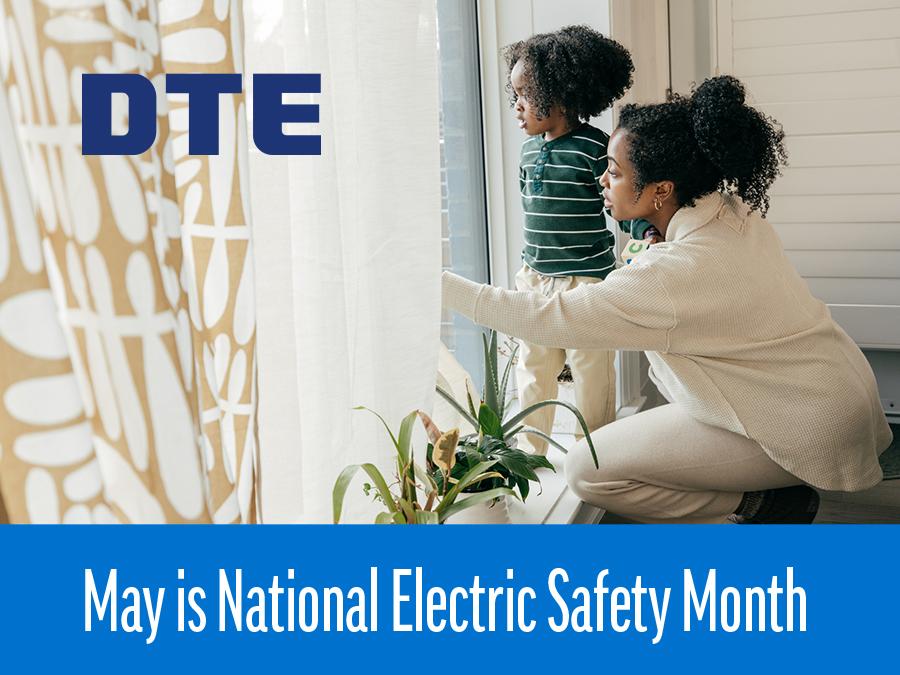As we all get ready to enjoy more sunny days and warmer temperatures, the summer season also has its own set of electrical safety considerations. Here are a few reminders from DTE Energy and the Electrical Safety Foundation International to help you make the most of your summer – and to keep you and your family safe.
Inside your home:
- Never step into a flooded area if water is in contact with electrical outlets, appliances or cords.
- Don’t use electrical appliances or touch circuit breakers or fuses when you’re wet or standing in water.
- Hire a qualified electrician to repair or replace outlets with loose-fitting plugs, exposed wires or broken plates. Use safety covers on all outlets accessible to children.
Outside your home:
- Make sure extension cords are the right capacity for the tool or appliance with which it is used. Use grounded (three-prong) extension cords for outdoor tools
- Keep balloons, kites, fishing lines and aluminum poles away from overhead lines.
- Your service drop, or the line that runs from the utility pole to your home, is your personal connection to the power grid, and DTE does not trim around these lines. Because these are energized lines, we highly recommend using a professional tree trimming service to perform the work.
What to do if the power goes out
If Mother Nature sends stormy weather our way, consider preparing an emergency kit with essentials like water, non-perishable food, medications, flashlights, batteries and a first aid kit, and make sure your mobile phone is fully charged.
- Look up to know what’s down. After a storm, make sure to look up at nearby poles to see if a line has fallen to the ground.
- Assume all downed lines are energized. Downed power lines can still be energized even if they don’t spark, smoke or buzz.
- Stay away. If you do see a downed power line, stay at least 25 feet away from it – that’s about the length of a school bus.
- Call it in. Call 9-1-1 or contact DTE at 800.477.4747 to report a downed power line. By reporting the issue, you’ll help DTE identify a potential public safety hazard quickly so we can prioritize our response.
- Never cross yellow caution tape. Caution tape shows that a hazardous situation exists. It has been placed there for your safety.
For more information about electrical safety, please visit dteenergy.com/safety.
